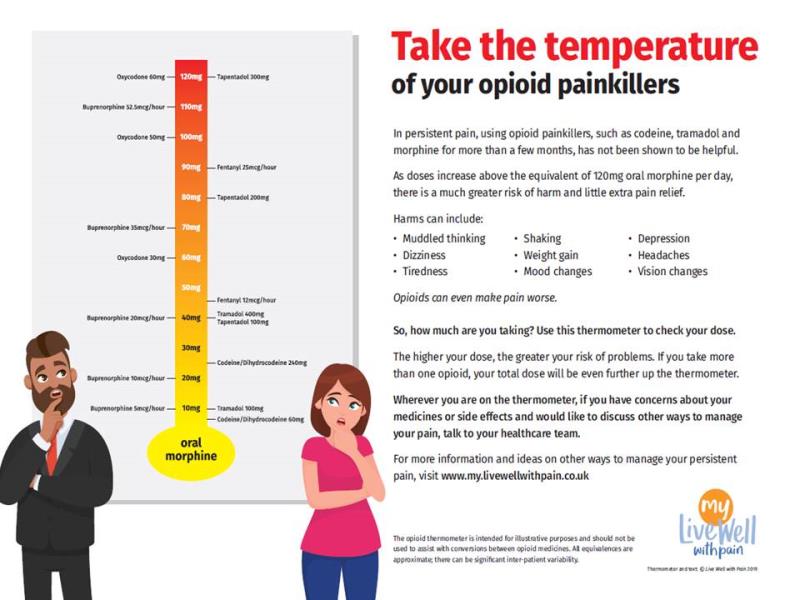Chronic pain
Everyone feels pain from time to time. when you cut your finger or pull a muscle, pain is your body's way of telling you something is wrong. Once you heal, the pain goes away.
Chronic pain is different. Your body keeps hurting weeks, months, or even years after the injury. Chronic pain is defined as pain that lasts for 3 to 6 months or more. Chronic pain can have a significant impact on your daily life, keeping you from doing the things you want or need to do. It can affect your self-esteem and make you feel angry, depressed, anxious and frustrated. The link between your emotions and pain can create a cycle. When you hurt, you are more likely to feel depressed. That can make your pain even worse.
These short videos below will help explain why chronic pain happens and what you can do to help the pain.
Understanding Pain (What to do about it in less than five minutes) from HSCNI on Vimeo.
Useful Websites for Chronic Pain
The Pain Tool Kit is a simple information booklet that provides patients with tips and skills to enable self management of chronic pain.
Adverse Effects of Strong Medication (Opioids) used for treating pain
Opioids are strong medicines that are used for treating moderate to severe pain. Examples include morphine, fentanyl, oxycodone, tramadol, co-codamol.
Opioids can be useful for treating acute short term injuries and cancer pain. However, they are not very good at treating long-term or persistent pain.
Studies suggest that risks to your health increase if you take opioids at high doses for a long period of time.
The following information leaflet will give you more detail in the risks associated with taking opioids.
Adverse effects of Opioids used for chronic pain
The Live Well with Pain website has some excellent patient resources which may help you manage your pain and explain the risks and benefits of opioid medication.
Opioid Conversion
